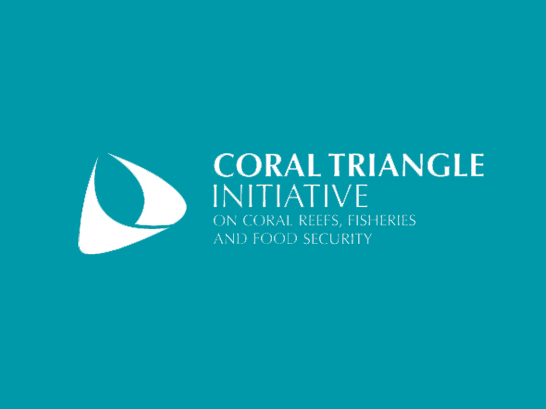Reports and Studies
Lorem ipsum dolor sit amet, consectetur adipiscing elit. Nulla vitae sapien vitae velit laoreet feugiat.
US CTI SUPPORT PROGRAM INTEGRATOR ANNUAL REPORT OCT 2010-SEPT 2011
Nisi feugiat placerat, pellentesque vel rhoncus odio,sed hendrerit
Explore



US CTI SUPPORT PROGRAM INTEGRATOR ANNUAL REPORT OCT 2010-SEPT 2011
Nisi feugiat placerat, pellentesque vel rhoncus odio,sed hendrerit
Explore



REGIONAL EXCHANGE PROGRAM ACTIVITY REPORT MONITORING & EVALUATION FOR IMPROVING MPA MANAGEMENT EFFECTIVENESS IN THE CORAL TRIANGLE COUNTRIES
Nisi feugiat placerat, pellentesque vel rhoncus odio,sed hendrerit
Explore



REGIONAL EXCHANGE PROGRAM ACTIVITY REPORT MONITORING & EVALUATION FOR IMPROVING MPA MANAGEMENT EFFECTIVENESS IN THE CORAL TRIANGLE COUNTRIES
Nisi feugiat placerat, pellentesque vel rhoncus odio,sed hendrerit
Explore



6th CTI-CFF Marine Protected Area Regional Exchange – “Sustainable Marine Tourism in the CTI-CFF Marine Protected Areas System”
Nisi feugiat placerat, pellentesque vel rhoncus odio,sed hendrerit
Explore



6th CTI-CFF Marine Protected Area Regional Exchange – “Sustainable Marine Tourism in the CTI-CFF Marine Protected Areas System”
Nisi feugiat placerat, pellentesque vel rhoncus odio,sed hendrerit
Explore



7th CTI-CFF MPA TWG Meeting
Nisi feugiat placerat, pellentesque vel rhoncus odio,sed hendrerit
Explore



7th CTI-CFF MPA TWG Meeting
Nisi feugiat placerat, pellentesque vel rhoncus odio,sed hendrerit
Explore



Regional Exchange on Developing an MPA Management Effectiveness Protocol to Support the Coral Triangle MPA System
Nisi feugiat placerat, pellentesque vel rhoncus odio,sed hendrerit
Explore



Regional Exchange on Developing an MPA Management Effectiveness Protocol to Support the Coral Triangle MPA System
Nisi feugiat placerat, pellentesque vel rhoncus odio,sed hendrerit
Explore



8th Marine Protected Area Regional Exchange and 8th Marine Protected Area Working Group Meeting
Nisi feugiat placerat, pellentesque vel rhoncus odio,sed hendrerit
Explore



8th Marine Protected Area Regional Exchange and 8th Marine Protected Area Working Group Meeting
Nisi feugiat placerat, pellentesque vel rhoncus odio,sed hendrerit
Explore



CTMPAS Nomination Form Categories 3 and 4
Nisi feugiat placerat, pellentesque vel rhoncus odio,sed hendrerit
Explore



CTMPAS Nomination Form Categories 3 and 4
Nisi feugiat placerat, pellentesque vel rhoncus odio,sed hendrerit
Explore



Report on the 7th MPA Regional Exchange
Nisi feugiat placerat, pellentesque vel rhoncus odio,sed hendrerit
Explore



Report on the 7th MPA Regional Exchange
Nisi feugiat placerat, pellentesque vel rhoncus odio,sed hendrerit
Explore











Brochure: Gwala Rises in The Bwanabwana Islands - Supporting Communities Conserve Coral Reefs Using Traditional Conservation Practices
Nisi feugiat placerat, pellentesque vel rhoncus odio,sed hendrerit
Explore



Brochure: Gwala Rises in The Bwanabwana Islands - Supporting Communities Conserve Coral Reefs Using Traditional Conservation Practices
Nisi feugiat placerat, pellentesque vel rhoncus odio,sed hendrerit
Explore








